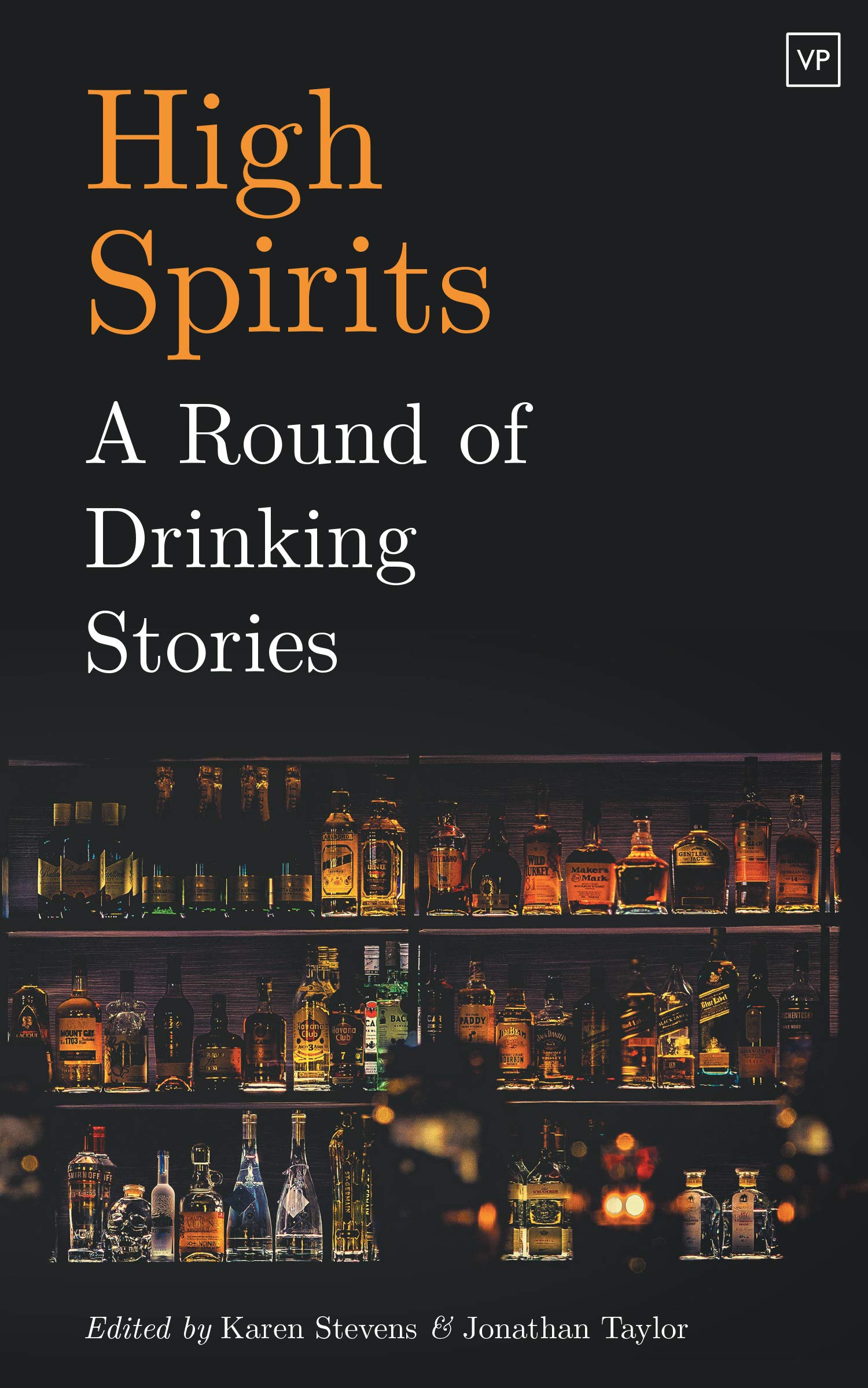Inspiring Older Readers
 posted on 31 Mar 2019
posted on 31 Mar 2019
High Spirits: A Round of Drinking Stories edited by Karen Stevens Jonathan Taylor
A collection of modern short stories with the theme of alcohol abuse might not have caught my attention quite as much as it did had it not been for the fact that I’d just finished reading an article in The Independent newspaper by Ceri Radford that pondered on whether a recently released volume of pieces by Charles Bukowski glamorised the cult of the heavy drinking, self-destructive author and underplays the damage that can be done.
To be honest, I find myself conflicted by this. Alcoholism is clearly a scourge that no-one would wish on another human being but I can't help but think that the relationship between the creative impulse and drink/drugs is so strong and so well-evidenced that there must be more to it than some kind of wild, macho impulse to run the risk of self-destruction. Alcoholic authors are almost certainly masters of the self-delusional rationale but I’m absolutely certain that a puritanical disapproval of the ‘demon drink’ doesn’t go anywhere near helping us understand – or appreciate – the role drink has played in the lives of writers down the years.
I personally grew up in an age when writers who flirted with drink and drug dependency were, to some extent, looked on with a sort of awed wonder by those of us who were young, excited by ideas and galvanised by tales of creative excess. I wasn’t old enough then to have a mind to the personal or social harm it represented – and, in truth, I’m not sure I’ve ever really got over that first infatuation with people who willingly seem to put themselves on the edge. I’m still drawn to the notion that the road of excess leads to the palace of wisdom. Crucially, William Blake, whose line that is, went on to say that ‘you never know what is enough until you know what is more than enough’ which, it seems to me, could be a manifesto for the likes of Bukowski, Hunter Thompson, Hemingway and countless others.
So I was particularly delighted that the collection of short stories in High Spirits is prefaced by an especially interesting and thoughtful essay by the two editors about the relationship between drink and the creative impulse throughout the ages. And perhaps even more provocatively, the links that can be found in the nature of drink and how it’s used and the characteristics of the short story:
“…alcoholism and its treatment are closer to a short story than they are, perhaps, to a novel. After all, like a short story, alcoholism often involves an ‘epiphany’…and again like a short story or collection of short stories, alcohol addiction is often structured around narrative fragments, because excessive alcohol consumption punches holes in memory.”
What Taylor and Stevens also don’t shy away from is that the relationship between drink and creativity or ceremony has been a consistent characteristic of human society across history. The relationship is a complex one and simply approaching it from a position of moral or medical opprobrium is unlikely to give anyone much of idea of why it is that so many people fall down the alcohol rabbit-hole.
So the short stories that follow the introduction are set on an excellent base and many of them capitalise on these complex and sophisticated ideas. There’s a really broad range of stories here – many of them dark and difficult – but all of which will have resonance. I have my particular favourites – the dreadful wilderness of the mind suggested by Michael Stewart’s ‘Painting the Walls White’ or the brutal drink-filled chauvinism of Jonathan Taylor’s ‘Just One More’ or the dark tunnels down which drink takes you in Alison Moore’s ‘May Day’ – but you’ll almost certainly have your own.
Just as with drink, don't try taking in too many of these stories in one sitting. It's a collection to dip into and find the flavour that works for you and to then savour the moment - intense though it may be. Ultimately, it's a fascinating collection for anyone who wants to explore our troubled relationship with our most social/able drug.
Terry Potter
March 2019